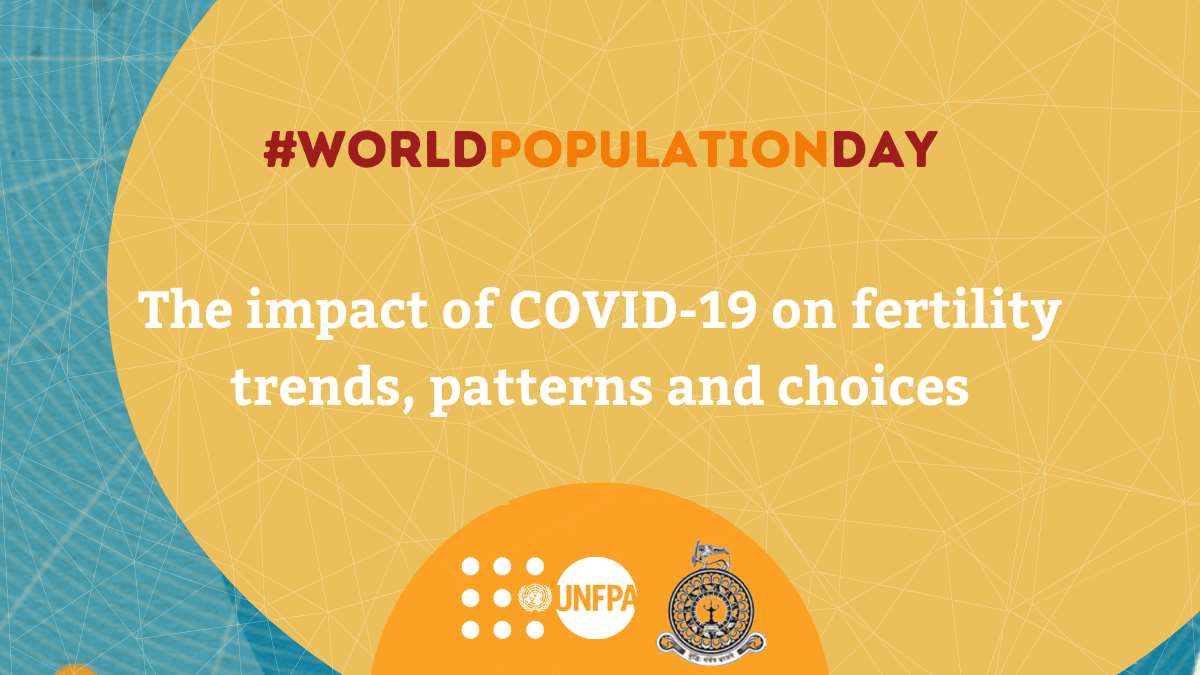COLOMBO, Sri Lanka (13 July 2021): On World Population Day (11th July), UNFPA called for leaders to respond to fertility and demographic shifts by prioritizing the sexual and reproductive health and rights of all people, including through access to Sexual and Reproductive Health (SRH) information and services.
The ongoing COVID-19 pandemic has exposed weaknesses in health care systems globally and has caused serious gaps and challenges in access to essential information and services for women and girls. Additionally, the reallocation of resources away from these services is taking a toll on the health of women and girls.
These factors have not only exacerbated gender inequities but also affect fertility leading to demographic changes. Existing data and projects indicate that, in some countries, the pandemic has interrupted access to family planning services, potentially increasing unplanned pregnancies among vulnerable groups.
To further explore the impact of the pandemic on human fertility trends, patterns and choices in Sri Lanka, UNFPA together with the Department of Demography, University of Colombo hosted a virtual event that highlighted the SRH needs and vulnerabilities of women and girls. The panelists, Emeritus Professor of the University of Colombo, Prof. Lakshman Dissanayake, Director of Maternal and Child Health of the Family Health Bureau, Dr. Chithramalee de Silva, Vice President of the International Union for the Scientific Study of Population (IUSSP), Dr Shireen Jejeebhoy, Regional Advisor on Population Ageing and Sustainable Development of the UNFPA Asia-Pacific Office, Dr Rintaro Mori, along with Chief Guest, President of the International Union for the Scientific Study of Population, Prof. Tom LeGrand, delved into how Sri Lanka could ensure Sexual and Reproductive Health rights and bodily autonomy is prioritized in policymaking as the country works towards recovering from COVID-19.
Speaking on the day, UNFPA Officer in Charge and National Programme and Policy Analyst for Women's Rights & Gender, Ms Sharika Cooray stated, “Health systems should be supported to deliver essential sexual and reproductive health services during crises. Primary to addressing fertility change is to ensure that every woman and every girl has access to reproductive services and the relevant information regarding their bodies. UNFPA’s mandate to enable reproductive rights and choices to all remains critical to the success of communities and the country as a whole especially during the pandemic.”
Highlighting the importance of prioritizing access to sexual and reproductive health services at the policy level, Vice-Chancellor of the University of Colombo, Professor Chandrika Wijeyaratne stated, “Even before the pandemic Sri Lanka did not have equitable access to sexual and reproductive health services. It’s imperative that this is prioritized at policy level so that the inequities exacerbated by COVID-19 can be countered in order to address any demographic shifts triggered by the pandemic.”
Emphasizing the reproductive health rights and choices of the women and girls, Head of the Department of Demography of the University of Colombo, Dr Manori Weeratunga, stated “The pandemic may increase the vulnerable status of women and girls. Hence it is important to recognize and respond to the issues which threaten the safety and violates the rights of women and girls which may affect their choices.”
Following the panel discussion, UNFPA and the Department of Demography, University of Colombo will continue to advocate for the prioritizing of SRH rights of all in Sri Lanka with a focus on vulnerable groups.
**ENDS**



